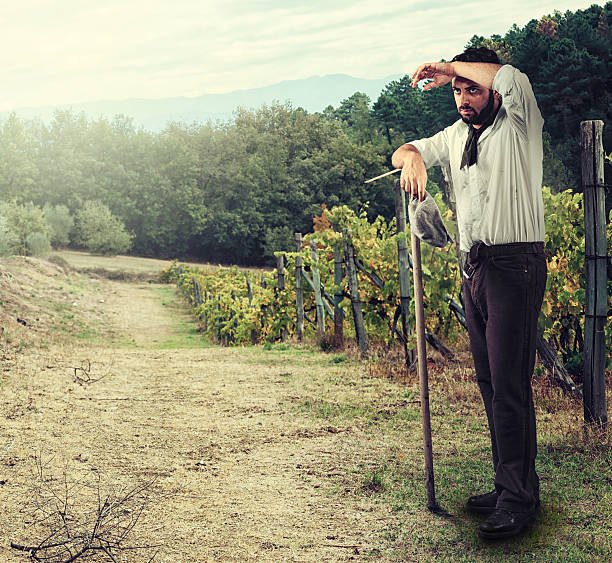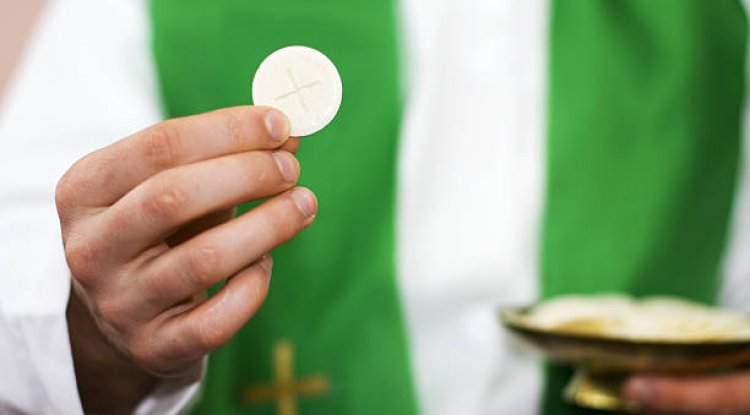THE UNPRODUCTIVE VINEYARD
HOMILY FOR TWENTY-SEVENTH SUNDAY IN ORDINARY TIME, YEAR A. Readings: Isaiah 5:1-7; Psalm 80; Philippians 4:6-9 and Matthew 21:33-43.

The liturgy for the past two Sundays have practically centered on the vine and the vineyard. These vineyards weren’t just sources for fruits and wine; they symbolized the relationship between God and his people. In the first reading, the prophet likened Israel to the vineyard tended by the Lord. This imagery, carries a message of care and expectation, like a wealthy father who has invested much in the life of his child and the child in turn, dropped his/her profession to embrace ‘street life.’ How will the father feel? Disappointed? That is how it is with the people of Israel and God, as seen in the readings of today. The poetic song describes God’s nurturing efforts and Israel’s shortcomings, represented by the metaphor of ‘wild grape,’ a symbol of sin.
The first reading presents to us the allegory of the song of the unproductive vineyard, “Let me sing for my beloved a love song concerning his vineyard: My beloved had a vineyard on a very fertile hill. He dug it and cleared it of stones, and planted it with choice vines… He looked for it to yield grapes, but it yielded wild grapes” (Is 5:1-2). Just like the wealthy father to his child, God recounts his love and care for Israel, He did everything possible to make her comfortable. God prepared the ground carefully (dug it up and cleared out its stones); planted with good stock, the choicest vine and the vineyard was protected with a watchtower. Provision for winepress was made to process the fruit. With all these, God was disappointed with the fruits from the vineyard. Invariable, the wild grapes the vineyard produced were bitter, with foul smell and poisonous in nature. This vineyard, Isaiah tells us is the house of Israel and so, God expected justice from Israel, but behold, bloodshed; he expected righteousness, but behold, a cry.
In this story, there was nothing left undone by the owner of the vineyard. Everything was put in place for the vineyard to produce good fruits and so God asked a question: “O inhabitants of Jerusalem and men of Judah, judge, I beg you, between me and my vineyard. What more was there to do for my vineyard that I have not done in it?” (vv. 3-4). God did all he could do and yet, Israel brought forth wild grapes. Of course, God cannot be blamed, for he has done everything for Israel or for man, and has given man the freewill to choose. Therefore, the fault lies with man, not God. God has given us all it takes to be fruitful: he has given us his grace; he has given us his Spirit and he has given us His Son. What else do we want from God to be fruitful in his vineyard? We are urged to cooperate with the grace of God and His Spirit that has been given to us, not to be passive Christians but active and fruitful.
Similarly to the poetic song in the first reading, Christ in the gospel used the same image of the vineyard in the parable of the wicked tenants. He addressed this parable to the chief priests and elders of the people, known as the religious leaders for their failure to produce good fruits and rejecting God’s prophets. He portrays them as the wicked tenants whom, instead of rendering good account, decided to overthrow the landlord or householder. The householder planted a vineyard, prepared it carefully, secured it, provided necessary things for proper harvest and hired men/vinedresser to manage it. When the season of fruit drew near, these hired men (the tenants), ceased the servants of the householder, maltreated and killed them.
Finally, the son was sent and they did same, believing they will take possession of his inheritance. However, the interest of the householder was not to yield to the tenants but to judge and destroy them when he asked, “When therefore the owner of the vineyard comes, what will he do to those tenants?” (Mt. 21:40). In response they said to him, “He will put those wretches to a miserable death and will lease the vineyard to other tenants who will give him the fruits in due season” (v. 41). When the Pharisees and elders heard this, they knew this parable was for them, that if they continue their rejection of God and the Messiah, the kingdom of God would be taken away from them and be handed over to the Apostles and later to the Gentiles.
The parable also helps us to examine ourselves on occasions we have rejected God and his teachings, it portrays the judgment and justice of God on those who will reject Christ, those who will again crucify him by wickedness, bitterness, envy, anger, lies, hatred and all sorts of evil acts. The vineyard is a metaphor for the blessings and responsibilities God entrusts us with. Just as the tenants were expected to cultivate and tend the vineyard, we are called to nurture and be stewards of the gifts bestowed upon us. If we fail in this aspect, He will lease the vineyard to other tenants who will give him fruits in their seasons. These fruits, St. Paul made it clear in the second reading: “Whatever is true, honorable, just, lovely and gracious should be our words and actions” (Phil. 4:8).
In a nutshell, the message of today’s liturgy is that God chose us as his vineyard, as he did to Israel with expectation of bearing good fruits, not bitter fruits or wild grapes and he has hired us as vinedressers to give account of his vineyard. He has given us everything needed to look after the vineyard, he has given us baptism, he has filled us with his Spirit, and he keeps giving us himself as a living sacrifice in an unbloody manner. When he comes in glory, are we ready to present to him our good fruits or will he be disappointed in us? Let us like the Israelites realize that the poetic song is not really about the vineyard, but about us, our sins and judgment. If we have been producing soured fruits, it is time to say like the Psalmist, “Lord God of hosts, bring us back; let your face shine on us and we shall be saved” (Ps 80:19).
Happy Sunday!
Fr. Ken Dogbo, OSJ
What's Your Reaction?



















